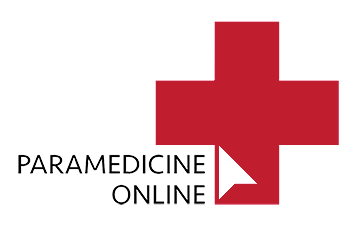How to become a Paramedic from a Nurse
How to become a Paramedic from a Nurse
Working as a Nurse is an incredibly rewarding experience, one that brings with it a variety of skills and knowledge that applies itself to other areas of the health care sector. What happens, however, when you want to change career paths? Do you have to start from scratch?
If you want to make the change from a Nurse to a Paramedic, the ParamedicineOnline can help you seamlessly transition into your new career path.
Make the most of your skills
Through your studies and experiences in being a Registered Nurse, it goes without saying that you possess many great qualities that will contribute to a successful career as a paramedic. For that reason, our diploma course program ensures that these skills are recognised, allowing you to build on your existing skills and knowledge in the process.
Available online and face to face, our Diploma of Paramedical Science is nationally recognised as a qualification and is an intermediate level course that will provide you with the skills necessary to step into higher level paramedical roles, such as:
- Emergency services officer
- Industrial medic
- Advanced life support
- Ambulance paramedic
- Ambulance transport attendant
- Emergency medical technician
- Private patient transport officer
- Ambulance attendant
- Emergency patient transport officer
- Emergency medical technician
You may want to explore the option of further study and obtain the Bachelor of Paramedic Science (Specialised) through one of our partners.
Comparison between Paramedics and Nurses:
Paramedics and nurses have to tend to patients in need of medical attention. While nurses look after patients when they arrive at a hospital, paramedics tend to a patient’s needs when he/she is being taken to a hospital.
Paramedics are required to assist patients during emergency situations and look after them within the ambulance.
The key responsibilities of nurses and paramedics are discussed below.
Paramedics
Most paramedics remain on duty around-the-clock to assist patients who need immediate emergency care. Their job includes the following responsibilities:
- Transporting emergency patients to a medical facility located nearby.
- Driving an ambulance, if the need arises.
- Observing all of the vital signs of the patient.
- Managing the medical supplies and equipment in an ambulance in the best manner possible.
Nurses
The job of nurses is fairly different from that of paramedics although both are still in the health care sector. Typically, nurses are required to work within medical facilities and assist the doctors in formulating a detailed plan of action when a patient is brought to a medical facility.
Their job requires them to manage the following tasks:
- Developing care plans for patients, checking their medical history, and documenting their progress.
- Operating medical equipment in the facility.
- Performing the required tests and reading results.
- Educating the patients about the future course of action.
Benefits of Being a Paramedic
Transitioning from a nurse to a paramedic can be fairly seamless with the help from a college such as ParamedicineOnline and the Diploma of Paramedical Science It is definitely worth it. Here are a few perks of being a paramedic.
Satisfaction of Helping Others
Paramedics are often the first ones to help others. They are required to quickly assess the medical state of a patient in need and make quick decisions about their health. While this process can be stressful and complicated, the satisfaction of playing such an important role in someone else’s recovery is worth the stress.
Freedom
Paramedics aren’t bounded by the walls of the medical facility they work within. They are usually on the go and are tending to emergency patients wherever the need arises.
Teamwork
All those who wish to function within a team can greatly benefit through a career as a paramedic. Teamwork is what makes paramedics achieve their true potential.
Educational Requirements
The diplomas for being a paramedic and a nurse do have some similarities and most nurses would be eligible for RPL for units completed in your nursing qualification, thus you can enhance your training or learning in the field by getting an RPL from a trusted source.
The RPL or Recognition of Prior Learning is basically used to assess and recognise the qualifications and experience of all registered nurses wanting to become paramedics. The RPL would recognise the current achievements of the candidate and give an understanding of what is required of them in the future. The RPL would also recognise the level of training to be given.
Start your transition from a nurse to a paramedic and kick-start your journey forward




